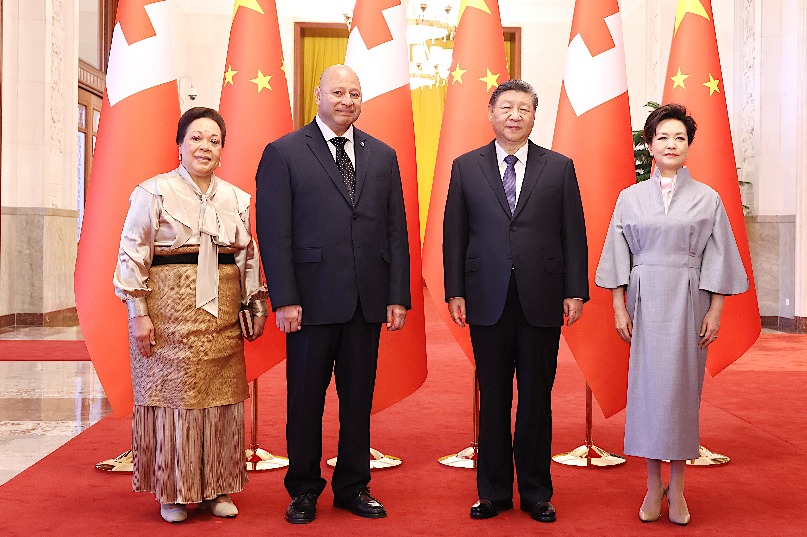India and China urged to jointly help global economic order
By Aparajit Chakraborty in NEW DELHI | chinadaily.com.cn | Updated: 2025-04-11 21:12
India and China, the two largest developing nations, should stand together against unfair US tariffs as their trade ties are complementary and mutually beneficial, according to officials and analysts.
The current US tariffs on Asian nations will deprive Global South countries of their right to development with discriminatory means that go against accepted global trading rules, said a spokesperson of the Chinese embassy in New Delhi.
"The two largest developing countries should stand together to overcome the difficulties. Trade and tariff wars have no winners," said Yu Jing of the embassy in New Delhi in a post on X on Tuesday evening.
US President Donald Trump announced 26 percent tariffs on Indian exports, but later, the White House said the rate hike would be paused.
All countries should uphold the principles of extensive consultation, practice true multilateralism, jointly oppose all forms of unilateralism and protectionism, Yu said.
Praising the statement, analysts and Indian businessmen doing business in China emphasized that India and China can mitigate the effects of the tariff imposed by the United States by focusing on complementary strengths, diversifying supply chains, and removing unnecessary trade barriers.
"China is a firm defender of economic globalization and multilateralism, which has injected strong impetus into the world economy, contributing to around 30 percent of global growth annually on average. We will continue to work with the rest of the world to safeguard the multilateral trade system with the World Trade Organization at its core," Yu said.
Pushan Dutt, a professor of economics and political science at the INSEAD business school in Singapore, regards this embassy statement as an initial invite to start thinking seriously about the new trade order and an attempt toward building trust
"The international trade order is dead and there will be a concerted effort to construct a new one to rise from the ashes of the old one. Large countries like China and India will have to take a key role as many countries are scrambling to respond to the breadth and scale of tariffs," Prof Dutt said.
With the US imposing tariffs abruptly on Chinese goods, China is exploring alternative markets to maintain its economic growth, and India could play a crucial role in this adjustment. The changes in tariff policies present opportunities for India to strengthen its bilateral trade with China, said Vijay Kant Mishra, executive vice-chairman of India China Trade Centre.
India can capitalize on it by increasing its imports from China, particularly in sectors such as electronics, machinery, chemicals, and raw materials. The tariff changes have also created opportunities for India to increase its exports to China, according to Mishra.
Indian External Affairs Minister Subrahmanyam Jaishankar said that India's relationship with China has improved significantly and the two countries are moving in a positive direction.
Indians doing business in China have called for closer trade engagements between the two countries and sought to accelerate overall economic cooperation to counter US tariffs.
India and China could focus on improving infrastructure and logistics to ease trade bottlenecks, making the trade process more convenient and less dependent on global tariff dynamics, suggested Sunil Kumar, an Indian businessman who has been doing business in China's Yunnan province for the last 10 years.
Both countries have immense potential to benefit from each other by focusing on complementary strengths, diversifying supply chains, and removing unnecessary trade barriers. India and China can not only survive the current tariff war but can emerge stronger in the long run, said Iqbal Hassan who hails from New Delhi and has been engaged in the hospitality and tourism business in Beijing.
The writer is a freelance journalist for China Daily.
























